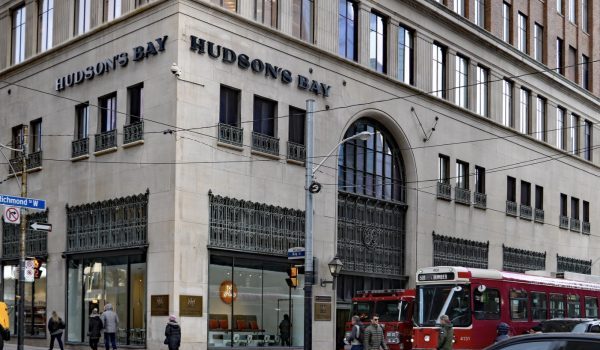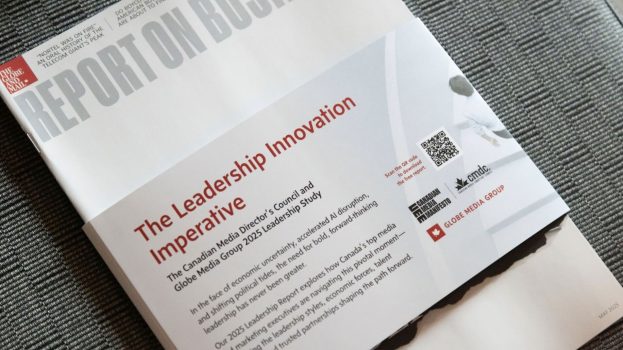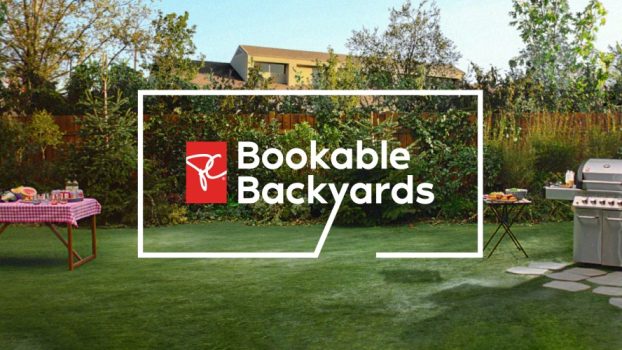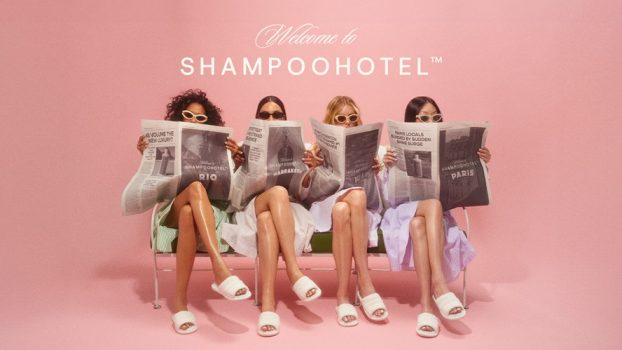As a 25-year Leo Burnett veteran, Jim McKenzie personally embodies the values, principles and goals of the agency he runs.
‘When I arrived in 1977, I immediately bought into the corporate culture hook, line and sinker’ he recalls. ‘Everyone knows I have Leo’s blood running in my veins. I know all the stories. It just felt like the right place where I could grow.’ Clearly, he’s not alone.
McKenzie and his fellow managers have made a conscious decision to articulate and perpetuate the Burnett culture because, like any good brand, it must differentiate itself from its competitors. And the agency has done just that – it has proven itself a unique, durable milieu that has successfully replicated itself around the world. So what’s its secret?
McKenzie recalls that when senior people in the Chicago head office were once asked what is the single word that defined Leo Burnett’s character, they said it wasn’t creativity – although he was highly creative – but integrity.
‘Integrity means having a solid value system and doing the right thing’ he says. ‘Unfortunately, integrity is not a word that people readily connect with the advertising industry. Many view it as cutthroat business that chews people up.’
When McKenzie was a young man working on a really tough business, the president, Kerry Rubie once told him: ‘Don’t try to get your sustenance from client relationships. Give them your best, but draw your sustenance from other Leo Burnetters.’
‘That was important advice because if you had a difficult account, often you wanted to jump off a bridge,’ says McKenzie. ‘But there are always great people at the agency to catch you. If you’re working with a shitty client at a cutthroat agency, what kind of hell is that to be living in? It seems axiomatic that if you are dealing with that kind of stress in the front lines, you should have an office environment that is nurturing and caring.’
As McKenzie entered the ranks of management, he began passing on the cultural values almost unconsciously. ‘We don’t write it down – it’s just that either you fit here or you don’t’ he says. ‘We don’t tolerate prima donnas or assholes. After you’ve worked here a long time, it’s hard to have perspective because it’s the only environment you know. You get shaken into the realization of it when you leave. Later, when you bump into them, they’ll often say, ‘God, I didn’t know I had it so good.’ Many will come back.’
In an industry that is notoriously bad at attracting and keeping talent, Leo Burnett has proven itself a rare exception. The average tenure of its employees far exceeds the industry standard. It’s a place where individuals are respected and rewarded, a place where they can build a career.
Most companies try to create team-building and a feeling of belonging with parties, service awards and assorted perks. But Leo Burnett often takes it that extra mile. McKenzie personally signs birthday cards for every employee – that’s now over 200 cards a year. Every Aug. 5, the anniversary of the opening of the Chicago office in 1935, the Toronto employees gather for a themed event and receive a dollar for each year of the company’s existence.
Perks abound: every long weekend, the office receives an extra day off, making for a four-day mini-holiday several times a year. Employees with over five years of service (totalling over 70 people to date) are feted with a lunch at the swishy Royal Canadian Yacht Club on Toronto Island; those with 15 years of service receive a gold watch; as employment climbs in five-year increments, so do the lavish Tiffany gifts and cash bonuses. With a ceiling of 8% of annual salary (5% is the industry average), Leo Burnett boasts the best employee profit-sharing plan in the business.
Decades ago, Leo Burnett was a pioneer of campus recruitment of young client service talent, largely from Western, Queen’s and York Universities. For example, Karen Tilley joined in 1989 from Queen’s and has risen to a managing partner in client service development. Burnett was instrumental in changing students’ perception that the advertising industry was a monolithic shark tank that chewed people up and spat them out.
But as times have changed, the agency has broadened its mandate. Now they run a bursary program with the Ontario College of Art, bringing in summer interns and paying part of their tuitions.
‘The talents of tomorrow might have different skill sets,’ says McKenzie. ‘We’re now looking for young people who can grow as integrators, who understand all the disciplines and tools, and can become the true leader on the business. That means looking outside the traditional business school environment.’
The agency also offers several scholarships and awards to nurture budding talent at the Ontario College of Art and Design. These include the Klaus Schoenfeld Memorial Scholarship, in memory of a designer and former Leo Burnett scholarship recipient who died at age 24; and the Gail Yacula Tuition Scholarship, named after a young former art director who died of cancer. The Katie McTavish Award, memorializing a promising young account executive who was killed in a traffic accident, is given to a graduating student of the CAAP course at the Institute of Communications and Advertising.
‘This is an ideas business,’ says McKenzie. ‘Most agencies grab talent higgledy-piggelty, often stealing from other agencies. Perhaps unrealistically, I expect everyone to stay together here. I can’t tolerate the attitude, ‘Well, we’ll get a good two or three years out of them.’ That’s just a self-fulfilling prophecy. We should strive to satisfy everyone’s career objectives here or internationally. Whenever people want to leave, we put the full court press on them to stay.’
______
The creative department and upper management congregate on the ninth floor of the Toronto office. At the centre of the floor is an open area called ‘The Hub,’ where company meetings and major announcements are staged. McKenzie finds that day-to-day casual interaction of creative and management helps the business at all levels. But McKenzie acknowledges occasional rumblings by some of the staff who believe ‘the shooters’ surrounding the Hub are the only people that matter. ‘I get less upset about it than I used to’ he says. ‘You can’t please all the people all the time.’
Periodically, management conducts temperature checks on the staff. One year, employees were polled: ‘Are you generally happy with the company or does it need changes?’ When only 58% of the staff replied they were happy, McKenzie was devastated.
‘That meant that 42% wanted changes,’ he recalls. ‘Later I learned that the average for all North American companies was 50%, so we were in fact ahead of the curve. It was a revelation to me about people: no matter how good you are, how much momentum you generate as a company, it’s human nature to complain. The trick is not to let it give you an ulcer.’
Executive vp and managing partner David Moore arrived at Leo Burnett in 1987, later saw stints in the Latin American and Chicago offices, and is now back in Toronto.
‘When I was responsible for the P&G business in Latin America, I was traveling all the time to offices in Lima and Buenos Aires’ he recalls. ‘One of the amazing things about this agency is that the culture is so strong you can walk into a Leo Burnett office in Buenos Aires or Moscow and know that you’re in Leo Burnett country. Likewise, I was in Chicago working on global P&G brands, launching Tampax in China and Secret deodorant in Russia. You see the continuity of the network and the strong culture in place.’
Moore sees the Canadian office as being advantaged in that it is very close to the Chicago home office, yet enjoys creative autonomy. ‘Historically, we have shared a lot of clients. We can draw upon resources and work with Chicago when need be. At the same time, because we are one-tenth the size of Chicago’s 2,000-strong office, we can be far more nimble and innovative. We enjoy the best of both worlds. We have similar client programs but we are a smaller, tighter-knit group. In Chicago, you’d be introducing yourself to other people in meetings. It’s quite different here.’
The culture of respect and integrity shows itself in the creative work, adds chief financial officer Tom Beckett, who joined the company in 1995. ‘If the work doesn’t reflect those values, then it’s time to take another look at it. We always revert back to those principles. It can be a bit hokey at times. But it still makes a lot of sense. People remember the apples and pencils. They support what the company stands for. In some agencies, you’re not really sure what they stand for.’
Edith Boyland, VP and director of broadcast business, is a 22-year veteran who started as a secretary.
‘I have now spent more than half my life here,’ she says. ‘I’ve had opportunities to leave but I couldn’t imagine working anywhere else that could be better. I did resign once, but they made a counter-offer for me to stay. Once I was on sick leave having surgery and someone offered me a job. It sounds so corny when you say it’s a family environment that really cares about you, but it’s true. When they gave me a gold watch for 15 years of service, I cried at the sentiments. They said they were ‘symbolically returning what you gave to us: TIME.’
‘In 1980 when I first joined, there were 165 people here and Kerry Rubie knew everyone by name. He’d stop me in the hall and ask about my husband. He makes every person feel special. That’s a quality that is irreplaceable.’
Like Boyland, Sybil Brynzan, executive co-ordinator, started as a secretary in 1969. ‘We tend to hire people who have a great personality and love their job’ she notes. ‘That, in turn, seems to infect everyone. For new pitches, everyone pumps each other up. It’s essential because of the long hours and heavy workload. You have to love it, or else it isn’t worth it.’
Director of operations Marg Arnold, a 14-year veteran, says her decision to stay put at Leo Burnett was a no-brainer.
‘During my time here, I’ve been approached by quite a few agencies and headhunters’ she says. ‘But why the hell would I leave? Why go out for burgers when you can have steak at home?’
‘The people are wonderful. If you want to work, the sky is the limit. They are not afraid to let you move around departments if that’s your inclination. Management is very open-minded. There’s no turning your nose up at anybody, from the mail room to the CEO.’
When creative director Judy John arrived at Leo Burnett three years ago, she had heard of its unique culture but wasn’t prepared for how different it would be from her previous agencies.
When John first went down to Chicago for the ‘Brinner,’ the annual breakfast for over 3,000 managers from all the global offices, she met people who had worked at Burnett for decades.
‘I have never worked at an agency like that before’ she says. ‘I have worked at Chiat Day, Taxi, Geoffrey Roche, O&M, and BBDO. I ran my own business. There’s a lot of turnover in this industry. But Leo Burnett is very much like a family that sticks together.’
That can have both its positives and negatives, she adds: ‘We try to leverage the positive aspects. There’s a danger of becoming comfortable and complacent in your family over time. We try not to encourage that. You have to keep challenging and re-inventing yourself.’























